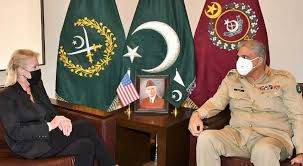
Image courtesy of Times
Prophet with a penetrating gaze: Naipaul and his ways of observing
ADITYA CHATURVEDI
Immanuel Kant, the legendary German philosopher once said, “Everything we see is an illusion and everything we hear is an opinion”. The quote is distilled Kantian wisdom with its metaphysical profundity, evasiveness, and Zen of subjectivity. I am not going to examine this quote from a new epistemological dimension or subject it to critical scrutiny under the mundane prism of cold realism, chipping away at obfuscation or undermining its sublimity. But my emphasis is on pointing out that Kant recognized the importance of visual and auditory responses – of looking, hearing, feeling and observing – as vital to the process of thinking, analyzing, knowledge creation and its transmission through the ages.
Now whether one accepts what he sees, feels and observes unquestioningly, or is skeptical about it or negates it as a delusion or a ‘disempowering social construct’ wouldn’t dilute the essence of looking and observing and how it has been at the core of literary pursuits and ambitions since the earliest human endeavor.
Michel Foucault once said in defense of the Iranian Islamic Revolution of 1979 that Iranians have their own truth, the Greeks their own, the French their own and so on.
Naipaul would have said that there aren’t divergent truths, but divergent ways of feeling, looking and observing. What to Foucault were the ‘regimes of Truth’ would have been a disparate medley of ways of observation.
Despite the obvious importance of perception, it remains a surprise that with the exception of VS Naipaul no other modern writer focused on the faculty of looking and observing as being primal to writing and analysing about people, their dilemmas, yearnings, challenges, and anxieties and how it affects societies and cultures.
Ways of Looking and Feeling
‘A Writer’s People: Ways of Looking and Feeling’ by VS Naipaul is a book that is not only a splendid personal memoir of a writer – who was given the sobriquet of the greatest living writer of English prose by Sir VS Pritchett – and his writing influences or prodigious literary ambition ( Naipaul was aware by the age of 12 that he wants to be a writer, but had little idea how) but it is also a beautiful insight into some of the most cerebral minds and influential people and is a stroll down the memory lane of a gauche, shy Oxford educated writer who was struggling to pay his bills in 1950s London and who would go on to become the brightest star in the English literary firmament.
The book is laconic, in its style and profound in the range of subjects it encompasses, and candid, intimate and honest in its portrayal of the different ‘writers people’
Naipaul begins with a reminiscence of Dereck Walcott and how during his first job at the Caribbean Voices program at BBC, which he got rather serendipitously, he was engrossed in the poetry of Walcott because he could identify both with the writer and his work.
Walcott, a poet from St. Lucia, an island in the Caribbean, self-published his best-known work ’25 Poems’ in early 1950s and whose literary star was waning, until, in the words of Naipaul, ‘he was rescued by the American universities and exalted as a leading Black intellectual and poet’.
Walcott would go on to win the Nobel Prize for Literature in 1992, but Naipaul felt the lyrical magic of his poems was lost much earlier. He soon became disenchanted with the poetry of Walcott whom he loved reading and reciting. Walcott who earlier wrote about the crisis of identity, bleakness and emptiness of a new middle class with the help of a perfect description of landscape lost his essence.

Like Father, like Son
‘A House for Mr. Biswas’, which is often called the magnum opus of Naipaul, was dedicated entirely to his father Seepersad Naipaul, a frustrated novelist and an on-and-off stringer for The Trinindad Guardian. Not only the protagonist in Mr.Biswas was inspired from Seepersad, Naipaul called it ‘his father’s book’ which has been possible only due to his early writings. The striving and the unfulfilled literary ambitions of his father had a formidable influence on Naipaul and his ways of perception.
He discusses his father along with two now-obscure Carribean writers: Edgar Mittelholzer and Samuel Selvon who showed promise as early writers but soon become obscure.
Mentioning his father’s long struggle and indignation and the talent which wasn’t recognized, Naipaul writes, “He is possible the first writer of the Indian diaspora, the first to write of its transplanted people and unprotected peasants.”
He could have established himself as a visionary writer. But his literary ambition was constricted and thwarted by the confusion of identity and the absence of a literary tradition, something Naipaul rues, made it hard for displaced Indians to write about India. There was a conflict between the India they left behind long back, India as the land of mystery and exotic ritual, the land of freedom movement, and India as the far away country of their origin whose fading image they wanted to preserve and recreate in their adopted homelands.
Early mentor
The British writer Anthony Powell was the earliest benefactor and perhaps closest to a mentor to Naipaul. The part about Powell is the most touching, emotional and at the same time reeks of a melancholic indifference. Naipaul got his book reviewing job in the New Statesman and later a stint in The Telegraph on the recommendation of Anthony Powell.
The two remained close friends for around 40 years. After the death of Powell in 2000, Naipaul was asked to say something about his departed friend’s oeuvre. Naipaul was at a loss of words because despite being long-friends he had never really read Powell.
While extolling Powell’s warm generosity, convivial spirit and his disposition as a ‘people collector’ – someone who was affable and kind to a wide range of people – Naipaul, when he later read Powell, found him unremarkable and unimpressive.
Though he considers Powell a ‘a part of his education’ and his lesson that there is a certain lyrical quality in an author’s first work which is lost in subsequent works, he cherishes it as the most useful of literary wisdom.
It might superficially appear that Naipaul is heaping scorn on Powell or trying to belittle him, but the pathos with which he has written about him reveals not arrogance but a tenderness and even gratitude for the man.
Gandhi and the colonial way
In his 1964 book ‘India: An Area of Darkness’ Naipaul called Gandhi the most ‘Un-Indian of all Indian leaders’. This may sound startling but the reason that he gave for it perfectly explains this characterization. Gandhi was the first politician in India who got repulsed with the filth in Indian cities and villages and the abysmal lack of drainage and sanitation facilities, and he exhorted cleanliness as a core priority. No one else noticed it not because it was something degrading or but because they didn’t bother about it. The indifference to the physical and the exterior was immanent in the traditional Indian way of looking.
Gandhi came to India after spending 3 years in Britain and 21 years in South Africa, the period which transformed a timid London-trained barrister into a public leader who would become the preeminent leader of the Indian Independence Movement. He took his inspiration from an eclectic range of sources: Leo Tolstoy, John Ruskin, Henry David Thoreau, jail code of Johannesburg, English common law and the No Breakfast Society of Manchester, as Naipaul puts it. This potpourri was anything but the archetypal Indian tradition that Gandhi blended. And his overseas experience shaped his sensibilities and his outlook more than anything else, even when he ‘remained a peasant at heart’ as Jawaharlal Nehru wrote in his autobiography.
It is for this reason that Gandhi, says Naipaul, like himself, has been influenced by the colonial experience. He draws a similarity between himself and Gandhi and attributes expatriation as a key to learning, self-assessment and great achievement.
It was this ‘colonial experience’ and the years abroad that made Gandhi repulsed by the filth, garbage and prevalent open defecation and vocally discuss it. Because he now had a new way of observing he could not observe things the way others were accustomed to. He had the detached impartiality of an outsider and yet the rootedness, conscience and the indefatigable zeal and optimism of a reformer.
Decoding the Gandhi enigma has both been a formidable challenge and a favorite pastime of India since generations, and this fetish has resulted in an inundation of faux Gandhianism – or what Naipaul calls Mimic Gandhis – and the original Gandhi being reduced to a totem and a caricature of a Hindi deity, which is ennobled in the hearts and minds of the people, so there is really no need to evaluate it. Or it has become more about the paraphernalia like spinning wheel and homespun.
Gandhi, Naipaul understands but India doesn’t, was a product of a particular societal conditions, history and culture and the key to unraveling Gandhi lies not in Khadi or vows of continence, but in exploring his South African experience.
“There is a little understanding that Gandhi had been created by the cultural incompetence of his three years in London and then his embattled 20 years in South Africa, those extraordinary conditions cannot be repeated.”
Nehru the modernizer
Jawaharlal Nehru, a stalwart of the Indian independence movement and the nation’s first prime minister was a statesman as well as a brilliant author. Among his influences were Westminster style British parliamentary democracy, Fabian Socialism that originated in the London School of Economics and the central planning directed and state-led massive industrialization policy of the USSR.
Born in privilege and educated at Harrow and Cambridge, Nehru had a knack for eloquence and learning.
But what strikes Naipaul is the fact that in his autobiography the only description of London, Cambridge and all the other places is just the names of those places. This was similar to Gandhi who wrote about the unavailability of vegetarian food or the time when his ship reached the shore of London, but nothing descriptive about the majestic capital of the Empire where the sun would never set.
Naipaul claims this lack of description was because of both the quintessential Indian way of remaining unconcerned with the exterior and physicality and looking at it only in relation to the self. The second reason that he gives is confusion that stemmed from half-familiarity. Both Gandhi and Nehru were not total outsiders in Britain. They knew English language, the courts, and the English law.
Unlike Gandhi whose defining moment was in South Africa, for Nehru it was a peasant agitation near his hometown Allahabad. He stayed with the peasants for over 3 days and by interacting with them and learning about their privation, a new sensibility and a compassionate way of looking awakened in him that fundamentally transformed him both as a political leader and as a writer.
Due to a new sense of perceiving things, ‘he would be now able to describe his jail cells in gripping details, as Naipaul described the change in his writing style which reflected a change in the person as well.
India of 21st Century
Naipaul laments that India doesn’t have a thriving intellectual tradition or a writing culture and what passes off as Indian writing or diaspora writing is written either in the UK or the US, as per the western tradition, and couldn’t be described as a national intellectual tradition which could have parallels with the French or Russian or British intellectual life in the 19th Century.
Since the fall of the Bengali Renaissance in 1910, an era for whose return and restoration the Bengali anglophile writer NC Chaudhuri nostalgically hankered all his life, there has been no vital intellectual culture anywhere else in India, which could provide us with a new way of looking and observing.
Naipaul’s assessment might come across as utterly dispiriting, despair-ridden, unrealistic and pessimistic, but it is a clarion call for self-assessment, exploring new vistas and shedding old hesitations.
“In the midst of winter, I found there was, within me, an invincible summer”.
Albert Camus

Image courtesies: New York Times, The Times, amazon.com



Comments